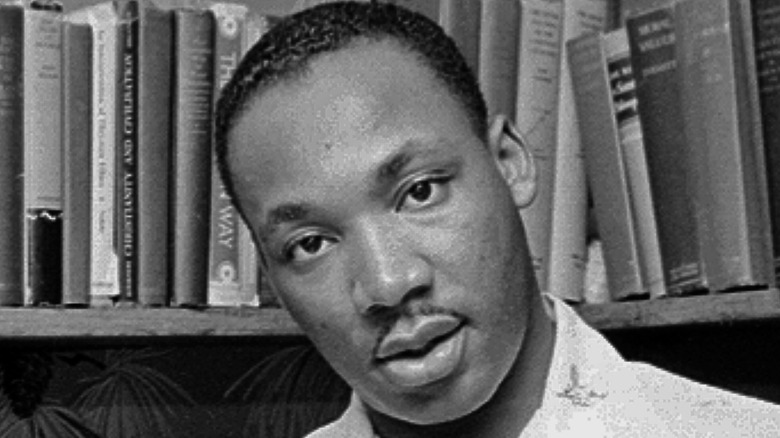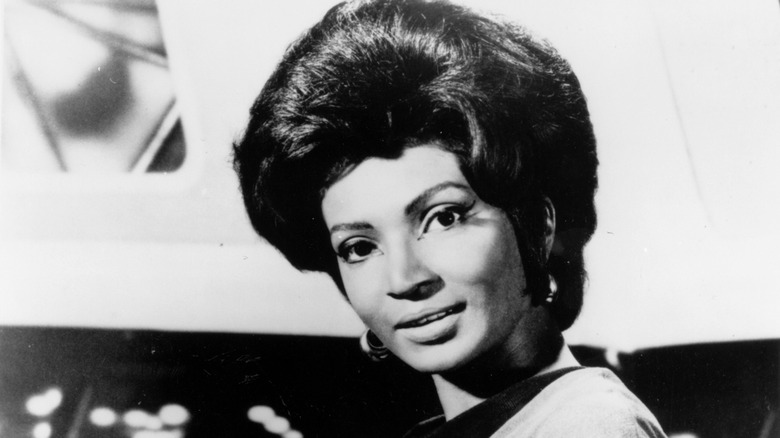What You Didn't Know About Martin Luther King Jr.'s Love For Star Trek
Science fiction has more in common with the civil rights movement than it may seem. Both have touted progressive ideas that have involved embracing differences to create a more harmonious world (or galaxy, or universe). Both have involved transcending the limitations of one's time (or planet, or gravitational force). And both share a passionate, vocal champion: Dr. Martin Luther King, Jr.
"Intolerance in the 23rd Century? Improbable!" Gene Roddenberry, the creator of "Star Trek," is quoted as saying in the 1968 book "The Making of Star Trek." "If man survives that long, he will have learned to take a delight in the essential differences between men and between cultures. He will learn that differences in ideas and attitudes are a delight, part of life's exciting variety, not something to fear. It's a manifestation of the greatness that God, or whatever it is, gave us. This infinite variation and delight, this is part of the optimism we built into 'Star Trek.'"
MLK convinced Nichelle Nichols to stay on "Star Trek"
At one point, "Star Trek" actor Nichelle Nichols, who played Lieutenant Uhura, decided to leave the television series after its first season for a role on Broadway, per Time. The series creator, Gene Roddenberry, urged her to think about the decision over the weekend before making it official. At a fundraiser that weekend, a member of the staff told Nichols that her "biggest fan" was "desperate" to meet her. The fan in question was Dr. Martin Luther King, Jr.
King told Nichols that "Star Trek" was the only TV show he allowed his children to stay up late to watch. When she told him she was planning to leave the show, he urged her not to, pointing out that she represented one of the few examples of African-American characters on American TV. He pointed out that the role of Lieutenant Uhura was not specifically intended for a Black woman, and that if Nichols left, the role could be recast with a white, and even male, actor.
Of course, King was known for being a powerful and persuasive speaker. In making the case that Nichols represented the vast possibilities for what Black women could accomplish, he successfully convinced her to remain in the role for the show's full three-season run. "He told me not only that I shouldn't but I couldn't leave," Nichols recounted in a 2016 interview for The Guardian. "He knew more than I knew. He knew more about me, where I was going to in my life, than I did."

